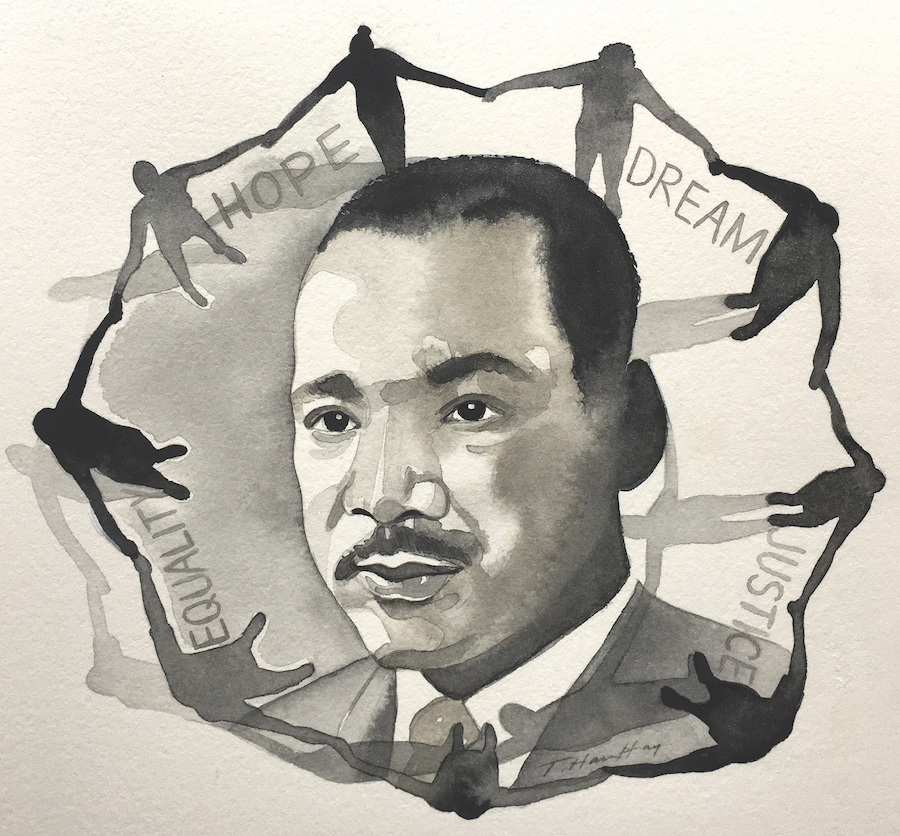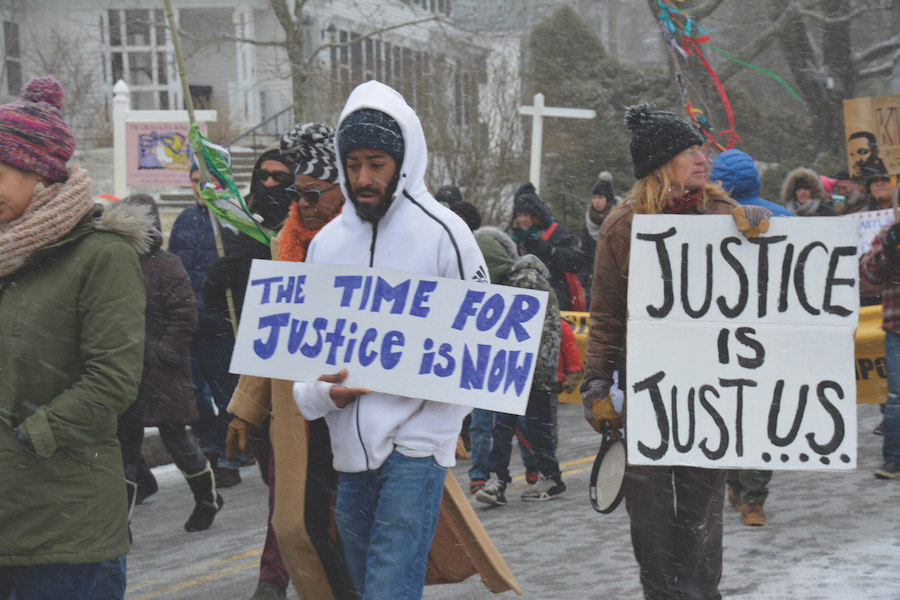TRURO — Last July, N.K., a University of Chicago professor here on vacation, took a right at the entrance to Corn Hill Beach in Truro, put her towel down, and got ready for a swim.
Not five minutes after she arrived, a woman came running down from her waterfront home and told N.K., who asked to be identified by her initials only, that she was trespassing on her property.
“There were hundreds of people all across the long pile of the beach, but I was not surprised that woman was singling me out and not any of the other people,” the professor said. “I was the only person of color on the beach.”
Though racially motivated incidents are uncommon, they do occur on the Outer Cape.
In 2019, Provincetown reported three hate crimes, which are defined as crimes that target protected groups such as minority races, religions, and sexual orientations. There were also two “hate incidents,” which involve the police but are not categorized as crimes.
Wellfleet, Truro, and Eastham had zero hate crimes, but Truro had one hate incident, the Corn Hill Beach case described above.
Whenever police respond to a complaint or incident, officers fill out a report in which they must choose “motivations” from an online drop-down menu, according to Truro Police Chief Jamie Calise.
One of the menu options is “race,” which is how race-related incidents are tracked. All four Outer Cape police depts. use the drop-down menu for filing reports, relying on an officer’s judgment to classify incidents as racially discriminatory or not.
Towns are not required to report hate- or bias-related incidents, and Truro, Wellfleet, and Eastham do not include them in their annual reports. Provincetown, which does, includes only the number of crimes and no other details.
In contrast, the city of Northampton keeps detailed public records of hate- and bias-related crimes that include an event summary, the bias involved, the victim’s race and ethnicity, and the outcome.
According to Truro’s Chief Calise, the Corn Hill Beach issue was resolved, and his officers gave the victim contact information for the U.S. Dept. of Justice Civil Rights Division.
N.K. tells a different story. The professor eventually left the beach after a verbal altercation with the property owner. She later spoke to the police, who, she said, had “absolutely no interest in helping, and no interest in me filing an official report.” N.K. filed one anyway.
“I never heard a single word back, never heard an apology,” she said. “My impression was that the police were more interested in the [public relations] damage than they were in helping me.”
The professor wrote to the Independent, saying it was not the racist encounter that was most traumatizing but the lack of police interest and the silence of witnesses on the beach.
“We have heard those stories,” said Kate Epperly, vice chair of the Barnstable Human Rights Advisory Commission. “I have a Muslim friend who was refused service in Hyannis.”
Over the past seven years, Epperly’s commission has dealt with targeted hate crimes on the Cape. Epperly recalls Nazi signs found on Craigville Beach in Barnstable two years ago, and a swastika painted on a flag in front of a Falmouth synagogue.
The commission is primarily responsible for education and awareness about human rights violations. The responsibility for enforcement lies with the Mass. Commission Against Discrimination (MCAD), which has the authority to file civil cases against people and organizations accused of discrimination.
“Our jurisdiction is discrimination at work, housing matters, places of public accommodation, access to education, credit, and banking,” said H Harrison, an MCAD spokesperson.
A public records request by the Independent revealed that, in 2019 and 2020, the commission received zero race-based complaints from anyone with an Outer Cape address. That doesn’t mean these kinds of incidents don’t happen, however.
N.K. said she did not pursue her case beyond the Truro police because she was upset that they “did not have anything set up locally to file a complaint or press charges, and it felt like passing on the local problem at hand.”
Also, not all race-based incidents on the Outer Cape have a clear victim or perpetrator, which can make filing a complaint problematic.
For example, Northampton resident Rick Haggerty was walking down Commercial Street in Provincetown on June 25 when he saw a sticker for the white supremacist group Patriot Front on the back of a road sign.
“We knew that had no place anywhere, especially in a place like [Provincetown],” Haggerty said.
He later found another sticker and reported both to the Provincetown police. Officers were dispatched to tear down any other stickers, Haggerty said.
The incident, though, was recorded as a “tagging” in the Provincetown police log and not a hate incident, according to Lt. Greg Hennick. The reason, he said, was that the stickers were on public, not private, property, and not directed at anyone in particular. Therefore, despite the obvious racial content, the police did not classify it as a hate incident.
To address discrimination issues, Wellfleet Police Chief Mike Hurley hopes to bring on board a full-time civil rights officer. Several other departments have requested a similar position, he said.
The state has also made a push to better equip local departments to deal with race and discrimination, including designating a full-time civil rights officer in every police dept., according to Hurley.



